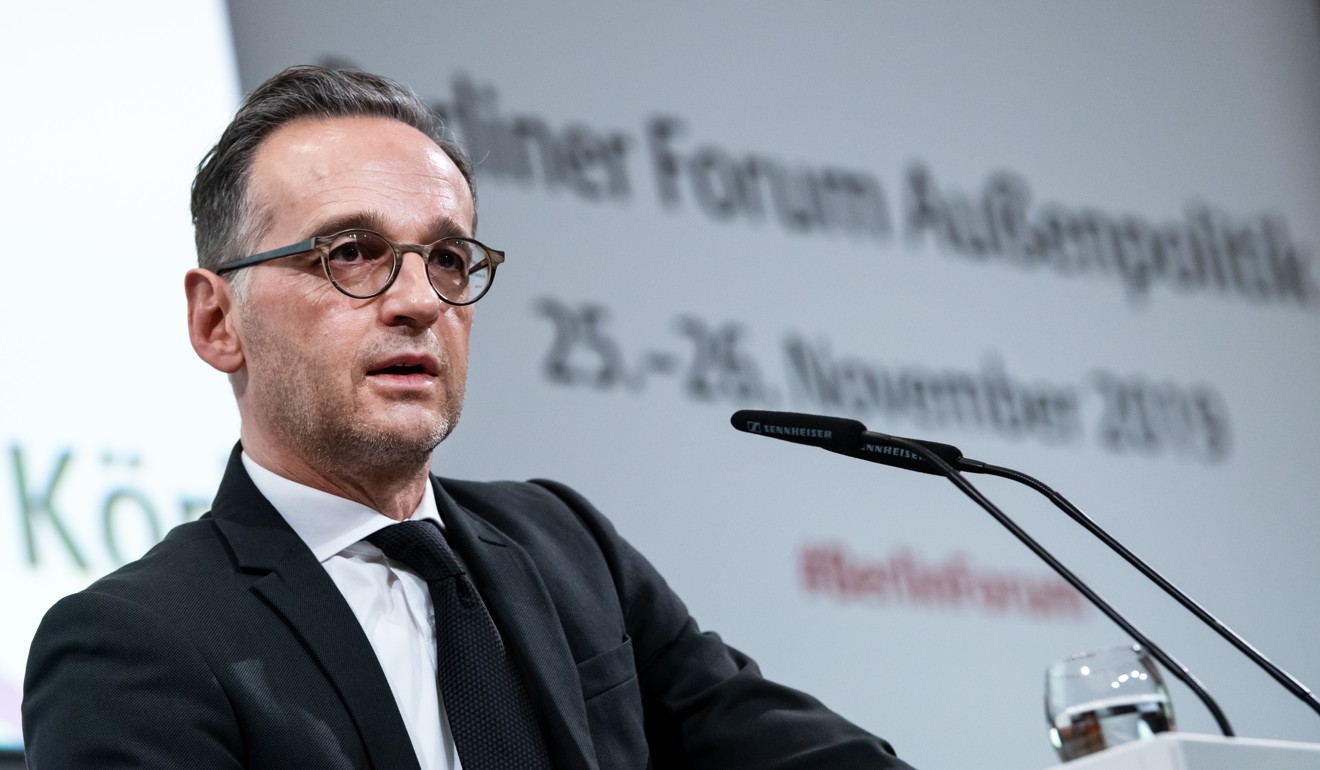
Germany steps up criticism over China’s Xinjiang policies with call for it to ‘meet its international human rights obligations’
- German Foreign Minister Heiko Maas issues warning in wake of publication of documents that ‘highlight workings of mass detention camps’
- UN experts have said at least a million Uygurs and others have been held in Xinjiang internment camps, but China says they are ‘vocational training camps’
Germany has stepped up its criticism of China’s actions in Xinjiang by calling for international monitors to be given access to the region to assess reports that large numbers of mainly Uygur Muslims are being held in mass detention camps.
“China has to grant access to Xinjiang for independent assessments of the human rights situation on the ground,” Maas told a policy forum in Berlin.
“China must meet its international obligations on human rights.”
China has defended its policies there by saying that it is only building “vocational training centres”, not prison camps, and has so far refused to grant foreign diplomats free and unrestricted access to the region.
United Nations experts and activists have said that at least a million Uygurs and members of other largely Muslim minority groups have been held in internment camps in Xinjiang.

A high-ranking European diplomat, who spoke on condition of anonymity, said the international backlash caused by China’s treatment of minorities had the potential to have a “very big impact” on future relations between China and the European Union.
This week the International Consortium of Investigative Journalists published a series of reports outlining the contents of what it said were classified documents that contained details of Chinese detention camps in Xinjiang.
It said the papers contained “previously undisclosed intelligence briefings that reveal, in the government’s own words, how Chinese police are guided by a massive data collection and analysis system that uses artificial intelligence to select entire categories of Xinjiang residents for detention”.
The ICIJ team comprised, among others, German newspaper Süddeutsche Zeitung and Japan’s Kyodo news agency.
China hits out at New York Times over report on Xinjiang crackdown documents
Japanese media reports said the country’s tech companies potentially provided surveillance cameras to Xinjiang camps.
On Tuesday, Japanese Foreign Minister Toshimitsu Motegi also voiced concern over China’s treatment of the Uygurs, saying: “We believe it is important that universal values in the international community – such as freedom, respect for basic human rights and rule of law– are upheld in China.
“As such, we are watching the human rights situation in the Xinjiang Uygur autonomous region with concern.”
Motegi also said he had relayed the same message when he met his Chinese counterpart Wang Yi this week.
Mike Pompeo says US ‘deeply troubled’ as China ‘harasses Uygur activists’ families’ in Xinjiang
The US has so far led the way in criticising China over its policies in Xinjiang with Secretary of State Mike Pompeo accusing Beijing of engaging in “enormous human rights violations” in the region.
Beijing maintains that the issue is an internal affair concerning its security, and insists that other countries should not get involved.
Additional reporting by Reuters and Kyodo

